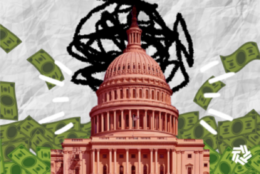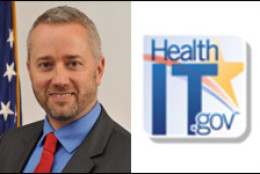Information sharing
-
The Office of the Director of National Intelligence said the lead agencies under the IC IT Enterprise program launched a standard desktop, a secure community cloud and an apps store in mid-August. Al Tarasiuk, the assistant DNI and intelligence community chief information officer, said the key to this effort was having an ICwide agreed-upon security architecture and policies.
September 10, 2013 -
The Department of Agriculture's Animal and Plant Health Inspection Service is using online identification tools to prevent a loss of expertise and institutional knowledge caused by a growing number of people retiring.
August 26, 2013 -
The FBI hopes a new portal, iGuardian, will enable the FBI to help companies protect themselves against malware by creating a repository of cybersecurity breaches.
July 31, 2013 -
The Enhanced Cybersecurity Services program has seen a lot of interest by vendors, but few have invested in accepting cyber threat data from the government. Meanwhile, the Cyber Information Sharing and Collection Program is growing through the two-way sharing of unclassified threat indicators.
June 13, 2013 -
Federal CIO Steven VanRoekel said the benefits will outweigh the concerns about making information more accessible. May 29, 2013
May 29, 2013 -
Frank Kendall says many different factors played into the Pentagon's decision to go with a competitive bidding process to develop its integrated electronic health record system, instead of adopting VA's VistA program. He said DoD wants to ensure its system is interoperable not just with VA hospitals but with civilian health facilities as well. In addition, Kendall cited cultural differences between the two large agencies.
May 23, 2013 -
President Barack Obama issued a new policy and signed an Executive Order requiring data to be open, machine-readable and safeguarded.
May 09, 2013 -
Senate lawmakers are promising to change the laws to let agencies have easier access to the Death Master File and other key databases. Starting June 1, agencies must check the Do Not Pay list before issuing any money.
May 09, 2013 -
The idea behind cyber threat intelligence is to understand more about the attack and the attacker than ever before by matching up patterns, anomalies and other characteristics of the bad guys. Energy, DoD, Commerce and DHS are all analyzing cyber attack data to develop this more complete picture.
April 25, 2013 -
A memo obtained by Federal News Radio points to a split in thinking inside the Pentagon's efforts to achieve interoperability with VA's electronic health record system. An assessment by the Pentagon's office of operational test and evaluation, an internal acquisition watchdog, finds DoD's project to build a new electronic health record is "likely to be detrimental to the President's goals" for interoperable health IT.
April 22, 2013 -
An update to the Federal Information Security Management Act and the Cybersecurity Enhancement Act of 2013 passed through the House Tuesday night. The Cybersecurity Information Sharing and Protection Act also passed, but faces a veto threat because of concerns over data protection.
April 17, 2013 -
Collaboration and a better way to measure risk emerge as the two main factors in developing a more integrated approach to protecting critical infrastructure systems and networks. At the first of four workshops, NIST got the lowdown from owners and operators as well as information sharing centers on what's working and what needs to be at the forefront as the framework is developed.
April 04, 2013 -
Doctor Doug Fridsma, chief science officer for HHS's Office of the National Coordinator for Health Information Technology, will discuss how interoperability will make it easier to share health information. April 2, 2013
April 02, 2013 -
President Obama's recent executive order directing that cyber threat information be shared more broadly with the private sector risks making the data less useful to the intelligence agencies that gather and process it. But the risk is worth the potential reward.
February 25, 2013 -
Despite a veto threat a year ago, House proponents of a cyber information sharing bill say productive talks now are underway with the Obama administration. Reps. Mike Rogers and Dutch Ruppersberger re-introduced the Cyber Intelligence Sharing and Protection Act (CISPA) trying to address privacy and civil liberties concerns.
February 14, 2013





